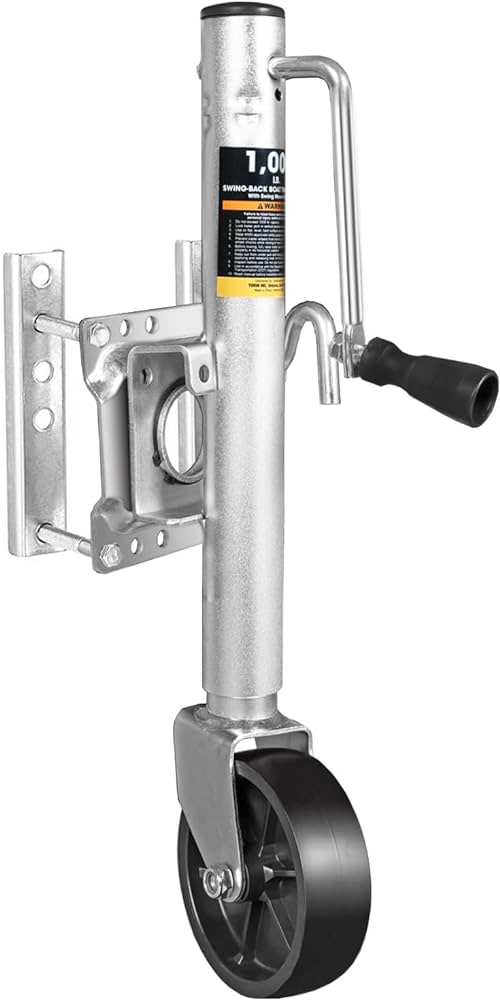
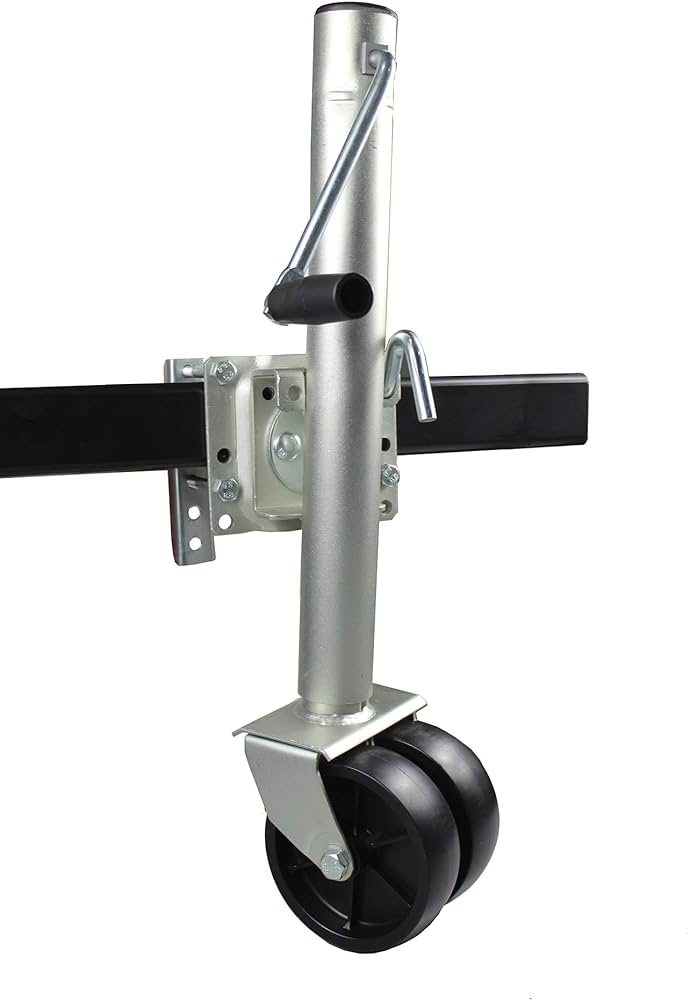
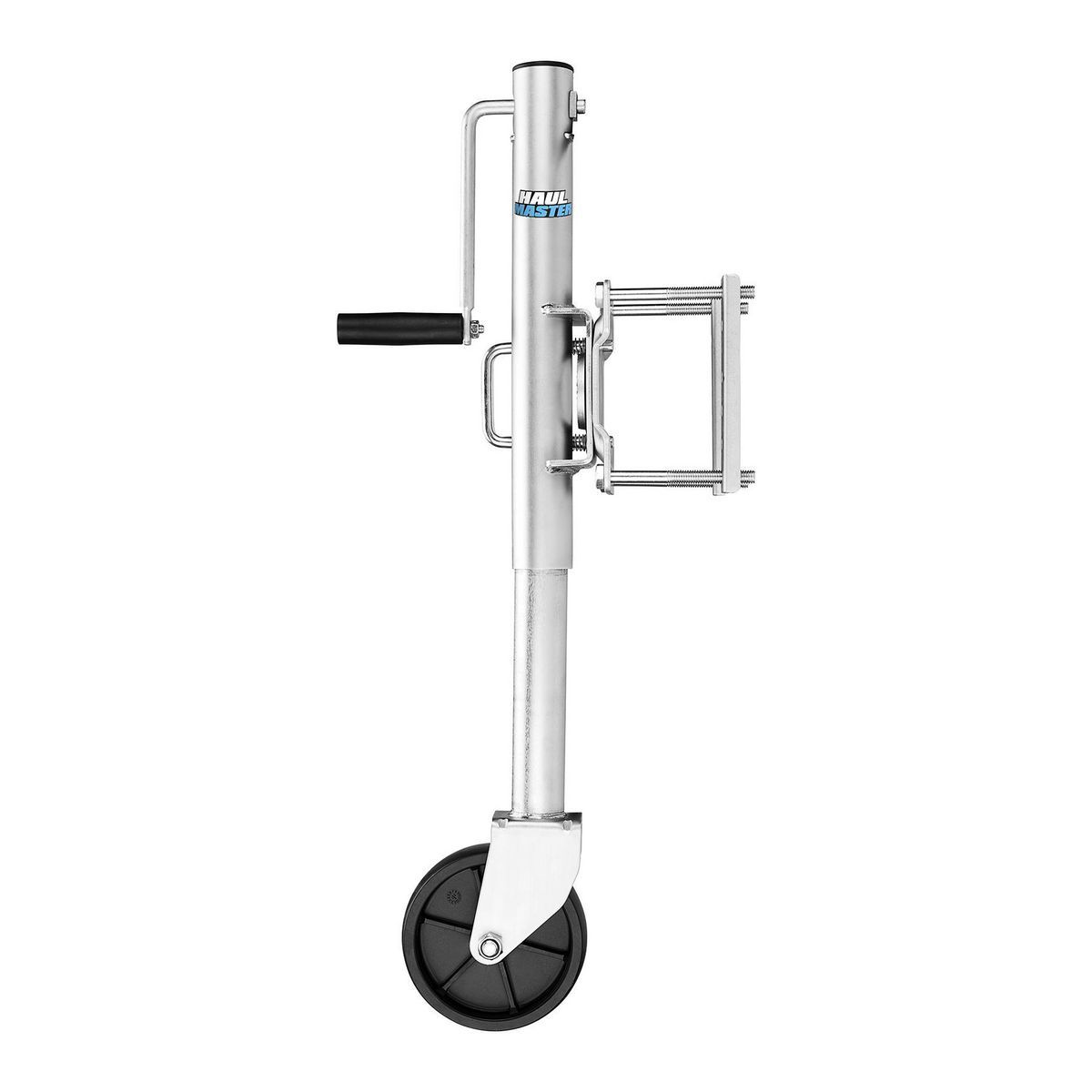
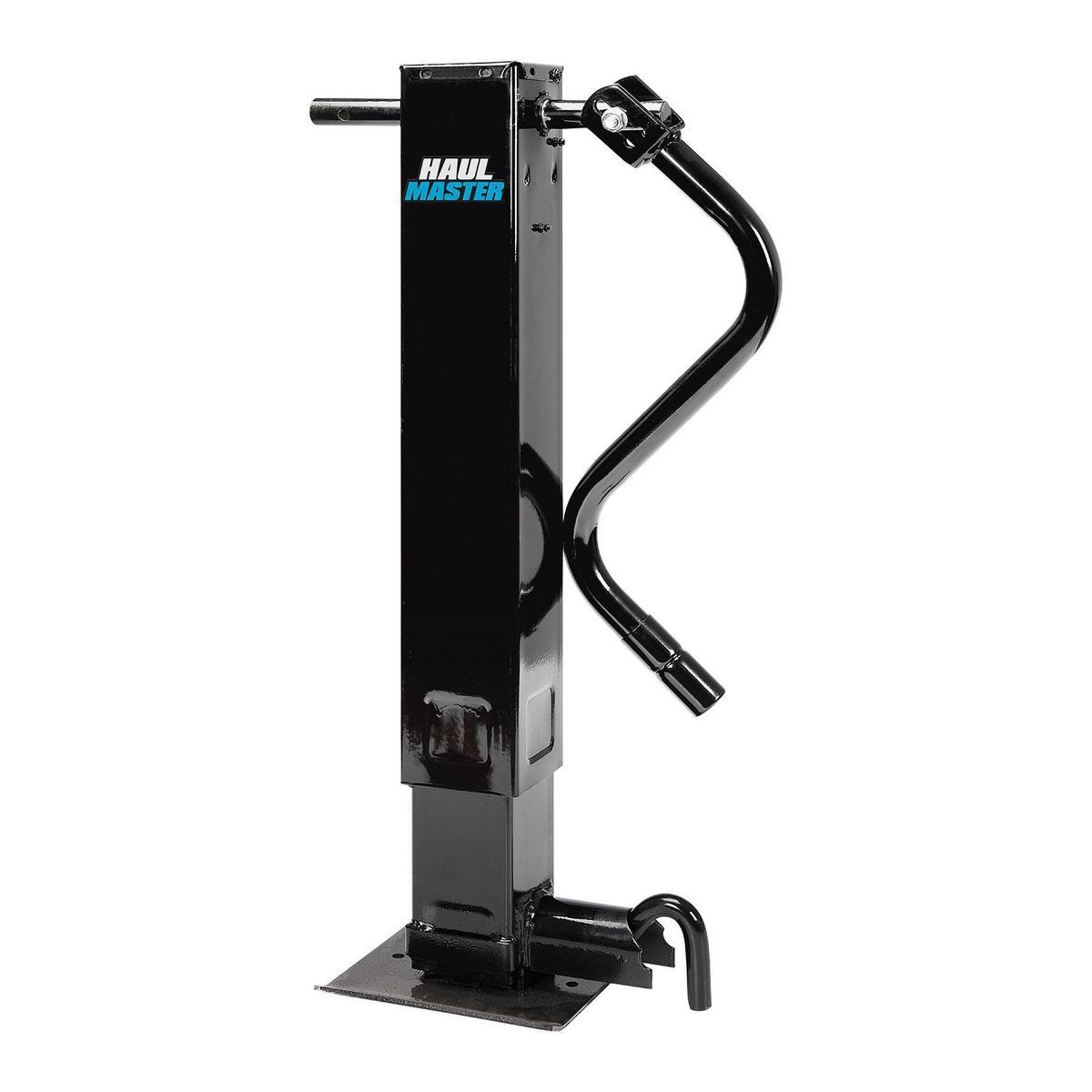
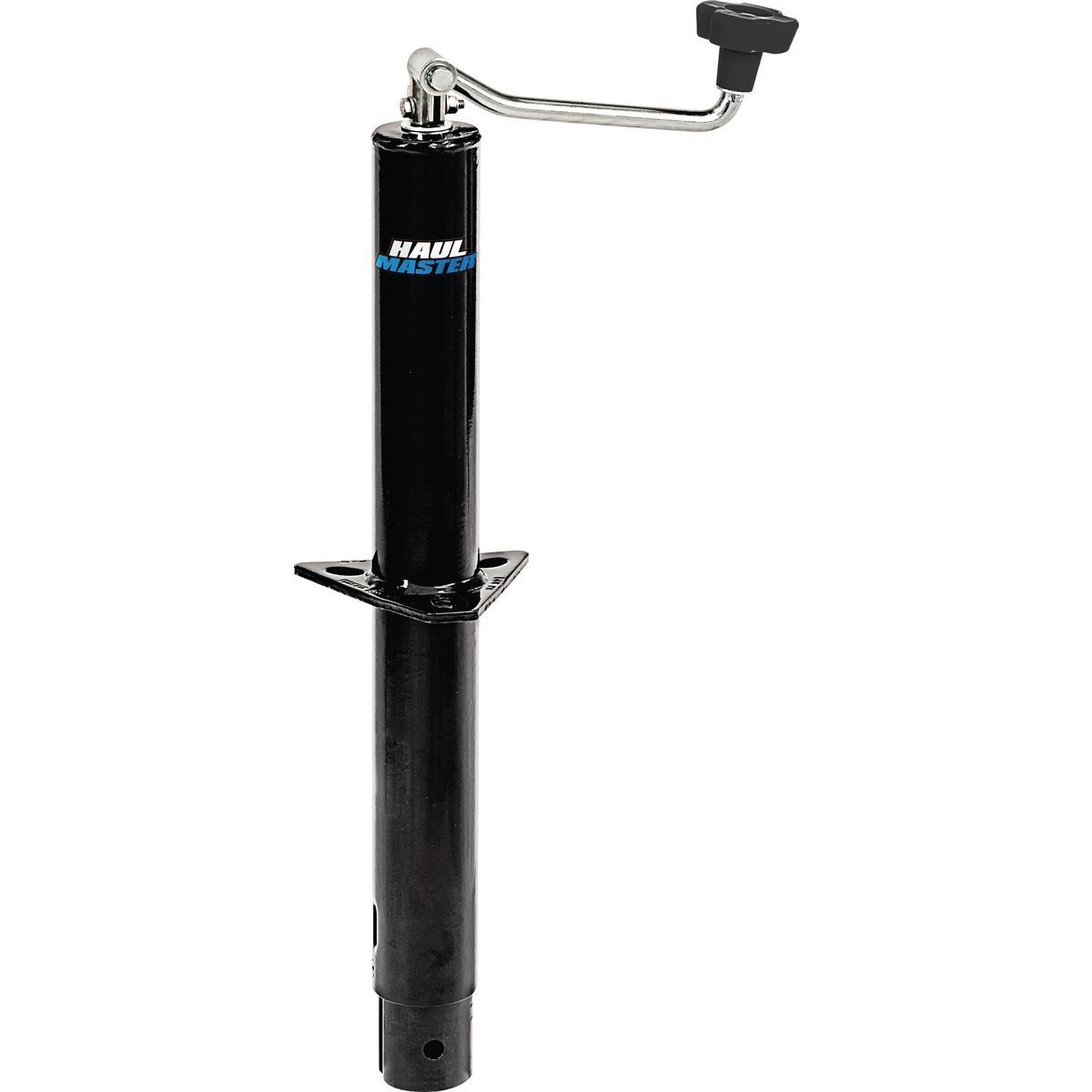
In the realm of trailers, trailer jacks play a crucial role in enabling safe and convenient maintenance, loading, and unloading operations. These versatile tools provide a stable platform for raising and lowering trailers, allowing you to access essential components, perform repairs, and handle cargo with ease. Whether you’re an avid camper, a professional hauler, or a DIY enthusiast, understanding the types, functions, operation, and maintenance of trailer jacks is essential for ensuring safe and efficient trailer usage.
Introduction to Trailer Jacks: Elevating Your Trailer for Maintenance and Convenience
Trailer jacks, also known as stabilizing jacks or leveling jacks, are portable mechanical devices designed to lift trailers off the ground. They are typically attached to the trailer’s frame or axle, providing a sturdy support base for various tasks, including:
-
Tire Changes: Trailer jacks enable you to safely raise the trailer to access and change tires, ensuring you can address tire issues without compromising safety.
-
Undercarriage Maintenance: By raising the trailer, you gain access to the undercarriage for inspections, repairs, and lubrication, maintaining the trailer’s overall condition.
-
Loading and Unloading: Trailer jacks can be used to level the trailer, making it easier to load and unload cargo, especially when parked on uneven surfaces.
-
Hitch Adjustments: When connecting or disconnecting the trailer from the towing vehicle, trailer jacks can provide support and stability during the coupling and uncoupling process.
Types of Trailer Jacks: Understanding Their Mechanisms and Applications
Trailer jacks come in various designs, each offering unique features and suitability for different applications. Here are some common types of trailer jacks:
-
Screw Jacks: These traditional jacks utilize a threaded screw mechanism to raise and lower the trailer. They are simple, affordable, and reliable for basic lifting tasks.
-
Gear Jacks: Gear jacks employ a gear system to provide more mechanical advantage and lifting capacity compared to screw jacks. They are often preferred for heavier trailers and tasks requiring more lifting power.
-
Hydraulic Jacks: Hydraulic jacks use pressurized hydraulic fluid to generate lifting force. They are known for their smooth operation, high lifting capacity, and portability.
-
Electric Jacks: Electric jacks are powered by an electric motor, offering convenient operation using a switch or remote control. They are particularly useful for users who prefer effortless lifting.
Choosing the Right Trailer Jack: Factors to Consider
Selecting the appropriate trailer jack depends on several factors, including:
-
Trailer Weight: Consider the weight of your fully loaded trailer to ensure the jack has sufficient lifting capacity.
-
Lifting Height: Determine the maximum lifting height required for your intended tasks, such as tire changes or undercarriage access.
-
Lifting Speed: Evaluate the lifting speed of the jack, considering the urgency of your tasks and personal preferences.
-
Stability: Choose a jack with a wide base and sturdy construction to ensure stability during lifting and lowering operations.
-
Portability: Consider the size and weight of the jack, especially if you plan to transport it frequently.
Operating a Trailer Jack Safely and Effectively
Before using any trailer jack, carefully read the manufacturer’s instructions and follow these general safety guidelines:
-
Choose a Level Surface: Park the trailer on a level and firm surface to ensure stability during lifting.
-
Engage Wheel Chocks: Apply wheel chocks to prevent the trailer from rolling while the jack is in use.
-
Raise the Trailer Gradually: Raise the trailer slowly and steadily, checking for any signs of instability or uneven lifting.
-
Support the Trailer: Once the desired height is reached, use jack stands or support blocks to provide additional stability.
-
Lower the Trailer Carefully: Lower the trailer slowly and evenly, ensuring it remains level and stable throughout the process.
Maintaining Your Trailer Jack for Optimal Performance
Regular maintenance ensures your trailer jack remains in good working condition and extends its lifespan. Here are some key maintenance practices:
-
Visual Inspection: Regularly check the jack for signs of damage, corrosion, or wear, especially after exposure to harsh weather conditions.
-
Cleaning and Lubrication: Clean the jack periodically to remove dirt, grime, or rust. Apply a light lubricant to moving parts to ensure smooth operation.
-
Functional Testing: Test the jack’s lifting and lowering functions regularly to ensure it operates smoothly and safely.
-
Storage and Protection: Store the jack in a clean, dry, and protected location to prevent damage from moisture or extreme temperatures.
-
Additional Tips for Safe Trailer Jack Operation
While following the basic safety guidelines is essential, here are some additional tips for safe trailer jack operation:
-
Never Exceed Weight Capacity: Never overload the trailer jack beyond its designated weight capacity. Exceeding the limit can lead to jack failure and potential safety hazards.
-
Use Jack Stands: Always use jack stands or support blocks in conjunction with the trailer jack to provide additional stability and prevent the trailer from tipping.
-
Inspect the Jack Before Each Use: Take a few moments before each use to visually inspect the trailer jack for any signs of damage or malfunction.
-
Mind the Weather Conditions: Avoid using the trailer jack in extreme weather conditions, such as strong winds or heavy rain, as these can affect stability.
-
Keep Bystanders at a Distance: When operating the trailer jack, keep bystanders at a safe distance to avoid any potential injuries in case of unexpected movements.
Troubleshooting Common Trailer Jack Problems
Trailer jacks, like any mechanical device, can encounter occasional problems. Here’s how to address some common issues:
-
Sticking Jack: If the jack mechanism feels stiff or difficult to operate, apply a light lubricant to moving parts and try again. Never force the jack if it’s stuck.
-
Uneven Lifting: Uneven lifting can occur due to an uneven surface or a faulty jack. Ensure the trailer is parked on a level surface and check the jack for any signs of damage.
-
Slow Lifting Speed: Slow lifting speed might be caused by worn-out components or a lack of lubrication. Refer to the manufacturer’s instructions for troubleshooting and lubrication recommendations.
-
Jack Malfunction: If the jack malfunctions completely, discontinue use and seek professional repair or replacement. Don’t attempt to fix a malfunctioning jack yourself.
The Benefits of Investing in a Quality Trailer Jack
While a lower-priced trailer jack might seem tempting, opting for a quality product offers significant advantages:
-
Enhanced Durability: A well-made trailer jack is constructed from robust materials and designed to withstand frequent use and harsh conditions.
-
Increased Lifting Capacity: Higher quality jacks often boast greater lifting capacities, ensuring they can handle the weight of your specific trailer.
-
Improved Stability: A sturdy jack with a wide base provides superior stability during lifting and lowering operations.
-
Smoother Operation: Quality jacks often feature mechanisms that ensure smooth and effortless lifting and lowering.
-
Reliable Performance: A reputable brand and quality construction translate to reliable performance and a longer lifespan for your trailer jack.
Conclusion: Trailer Jacks – A Wise Investment for Trailer Owners
Trailer jacks are not just convenient accessories; they are essential tools that ensure the safe and efficient maintenance, loading, and unloading of your trailer. By understanding the different types, selecting the right jack for your needs, operating it safely, and maintaining it properly, you can extend the life of your trailer and ensure a smooth and trouble-free towing experience. Remember, a trailer jack is an investment in the safety and functionality of your trailer, and choosing a quality product will provide peace of mind and years of reliable service.
-
Leave a Reply